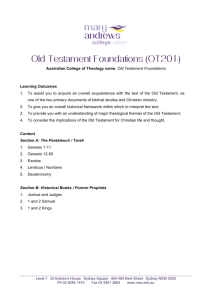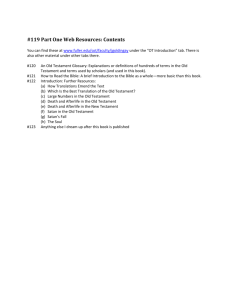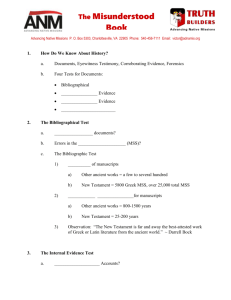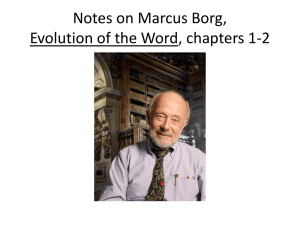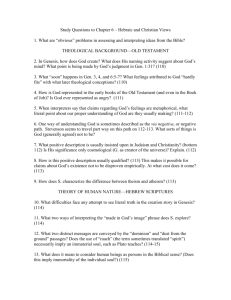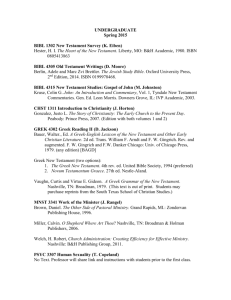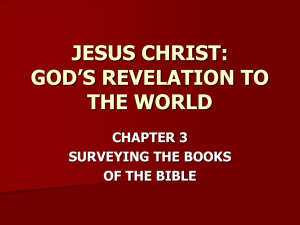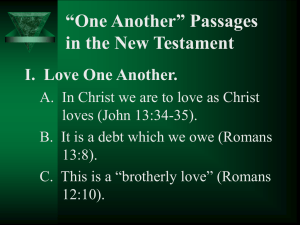The Political Theory of the New Testament and
advertisement
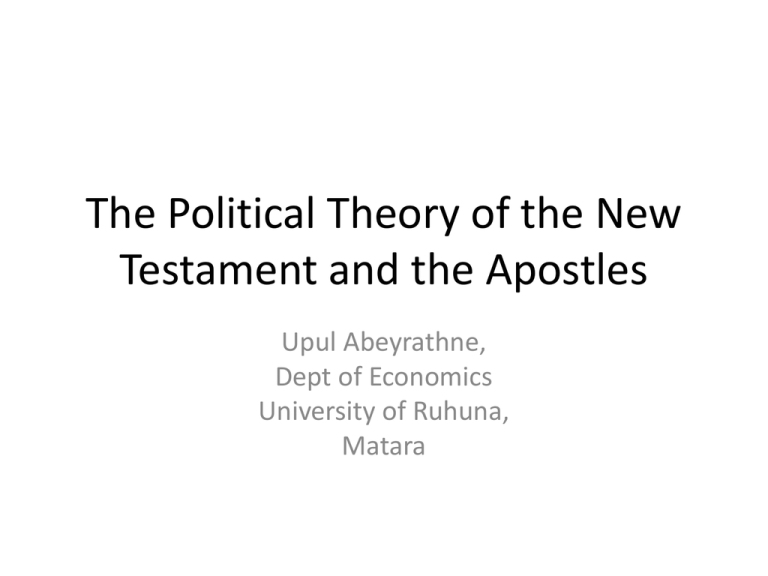
The Political Theory of the New Testament and the Apostles Upul Abeyrathne, Dept of Economics University of Ruhuna, Matara Stoicism and Christianity • Christianity Shares a good deal with Stoicism. • Most of the Christian Doctrine is based on the Stoic Principle of the Equality of Man. What are the important ideas of new testament • Equality of Man • Law of nature • Origin of state • Obedience to state What is specific in the new testament • Most of the above are discussed in relation to dogma of the equality of man • Universality of God and brotherhood. • It closely relates with the stoic conception of common humanity and cosmopolitan equality • These ideas prevented medieval serfdom from degeneration into Slavery • It also had paved the way for Individualism of Renaissance and Reformation New Testament and the State • The Christian view on State is given in the Epistles to Roman • These Epistle declare the object of state is justice • The notion of justice is sacred • Hence, any institution that deals with justice is also sacred • The officers of the state are to be obeyed. New Testament and the State • It should be noted that this notion is suited to the exigencies of the time. (Infancy of Christianity). • If Christianity adopted a hostile attitudes towards state it could have crushed by the state very easily. • “Render unto Caesar what is Caesar” was adopted by the apostles too. • Early Christians believed state as a medium of carrying the will of the god on earth. Property • Books of Acts is very important in this regard. • It gives a more less communistic idea of property. • According to new testament, communism is the ideal form of society • However, it is not a compulsory one like that of Plato. • It involves a greater equalization of property and advantages not under compulsion but on charity and feeling of neighbourliness. • It is cherished by the rich towards the poor. Property • The new testament treats abolition of private property is impossible. • Christians held up that communism is the best type of society but stopped short at that. • They had never sought to enforce the doctrine of communism through the medium of the state Slavery • They believed in essential equality of humans and necessity of equal opportunity • However, this did not lead to the preaching of abolishing slavery • They had compromised their moral philosophy saying that real life is internal life while slavery representing the physical bondage. • Their love for universal man have been limited to that of good treatment of the slaves Law of Nature • They had distinguished between the law of the nature and law of the state. • Law of nature is unchallengeable. • They had identified the law of nature with that of law of the god.
